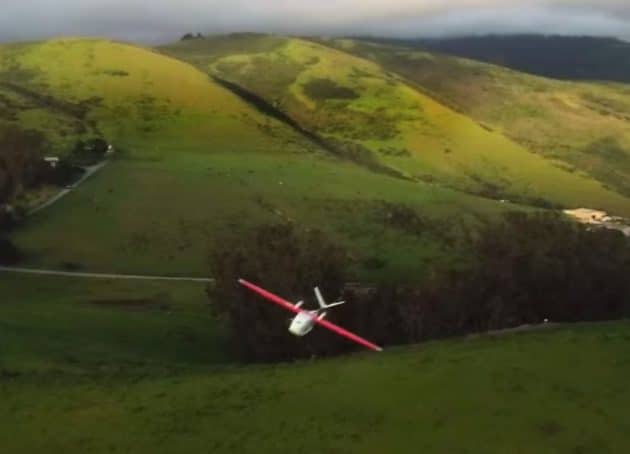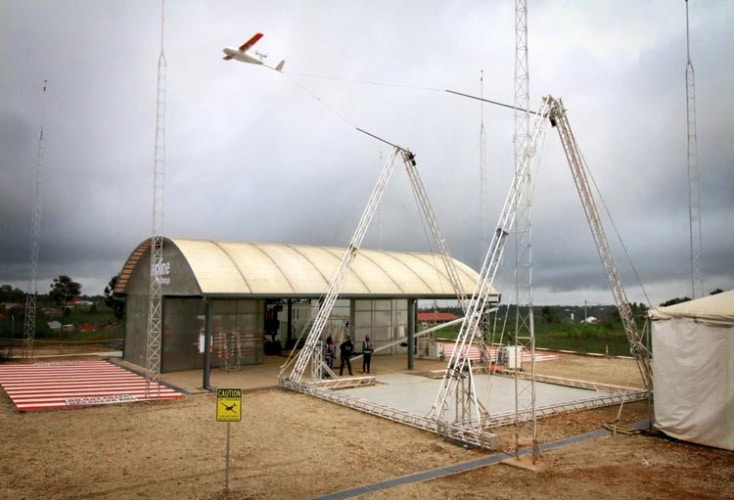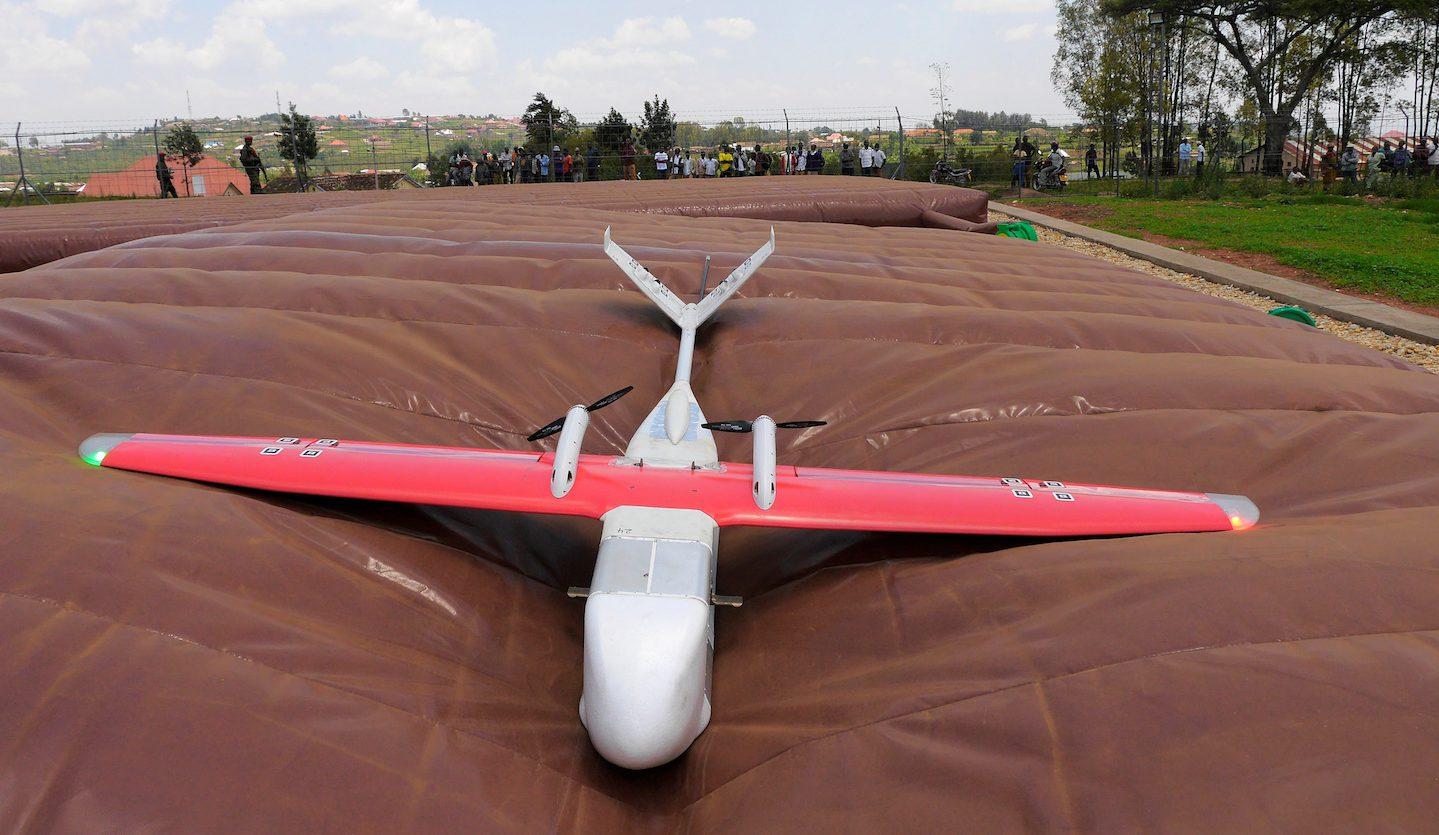Rwanda (Kigali)
A drone company saving lives in Ghana and Rwanda has become a lesson in using autonomous drones as a tool for social distancing.
Zipline is getting vital medical goods such as blood products and vaccines to far-flung hospitals that serve people who really need them.
“If ever there were an urgent need for medical drone delivery, that time is now.”
Their drones could assist with delivering the coronavirus vaccine to the most critical areas – since deliveries happen by parachute, without a delivery person. Next stop: India and the US.

Back in 2014, Zipline International reinvented the drone in a mission is to “provide every human on Earth with instant access to vital medical supplies”.
“Millions of people across the world die each year because they can’t get the medicine they need when they need it.” – Keller Rinaudo
More than two billion people lack adequate access to essential medical pharmaceuticals, often due to challenging terrain and gaps in infrastructure. Because of this, over 2.9 million children under age five die every year. And up to 150,000 pregnancy-related deaths could be avoided each year if mothers had reliable access to safe blood.
That’s why, in 2014 the government of Rwanda partnered with the San Francisco startup to use its cargo drones to deliver medical supplies, vaccines and blood to remote health clinics and hospitals that are either difficult or impossible to reach via traditional modes of transportation. As Design Week puts it: “At its heart, the creation of Zipline is a story of government and private enterprise working seamlessly, a strong concept and a solution to a very real problem based on an obsessive design and test programme.”

“Our contract with Rwanda didn’t even mention drones,” explains founder Keenan Wyrobek. “We’re couriers. Drones were just the best way to solve the logistical problem of delivering supplies in that environment.”
The system requires health workers to place orders by text message and receive their deliveries in 30 minutes on average.

Rwanda, one of the world’s poorest nations, is the first country in history to use drones in this way. This makes the technology hub for East Africa ahead of places like the United States in establishing a commercial drone delivery network: “The concept of drone ports is something that a very small decision-making unit in the country decided they were going to do,” explains Michael Fairbanks, a member of the Rwandan president Paul Kagame’s presidential advisory council. “It took a very short time. It’s something that America could learn from.”
The drones have an almost eight-foot wingspan and use GPS to navigate and communicate via the Rwandan cellular network. Capable of flying 100-mile round trips at up to 80 mph, they are able to fly in rough weather and at a temperature needed to provide blood and vaccines. To start they started with make 50 – 150 of critical emergency deliveries per day to Rwanda’s 21 transfusing facilities.
In April 2019, Ghana’s Vice-President Dr Mahamudu Bawumia launched Ghana’s first drone delivery centre at Omenako, a village near Suhum in the Eastern Region. The drones benefited 12 million people across the country, with 148 different vaccines, and at least 500 daily drone flights delivering vaccines, blood supplies and life-saving medicines to 2,000 health centres in remote areas around the country.
“We can now prevent the death of the mother in labour who needs blood. We can now deliver critical medicine to regional and district hospitals in the shortest possible time,” explained Ghana’s Vice-President, Dr Mahamudu Bawumia, at the time. “The use of drones is presenting a significant opportunity in changing the health delivery needs of people around the globe. This will save the lives of people who may have otherwise lost their lives through childbirth, snake bites, accidents and other life-threatening emergencies.”

Globally, access to vital health products worldwide has been hampered by the last mile problem – the difficulty in supplying medicine from central storage to remotely located patients when and where they need it.
Since it began service in 2016, Zipline has flown over a million miles and made more than 60,000 drops. While the medical drones can be effective, cost-saving and time-saving – in quick delivery of life-saving medicines and blood to health facilities – the challenge could be in maintaining the technology and how to use it in situations where there is no electricity.
Zipline has been devised as a scalable business and you could say it’s ‘pro Bono’ – as the U2 frontman joined the board in September 2019 and is now an advocate.
The company’s original mission still stands – to build an automated supply chain for the world, allowing drones to deliver low cost products on demand. Today. the project has the potential to revolutionise public health and save thousands of lives – and can help streamline medical deliveries while maintaining social distancing. Spurred on by the coronavirus pandemic, Zipline are currently looking at ways to drop supplies off directly at people’s homes in the US too, also quickly distributing masks and other personal protective equipment.
“If ever there were an urgent need for medical drone delivery, that time is now,” Justin Hamilton, global head of communications at Zipline told Bloomberg. “Our first priority is serving customers in Ghana and Rwanda. But we recognise these are extraordinary times and are open to exploring how we can help the United States and countries around the world respond to the pandemic and its after effects.”
In 2020, An influential engineering director at Tesla, Joe Mardall, resigned his position at the automaker to become head of engineering at Zipline: “The next five years are going to change everything and I can’t wait, Come fly with me!”
The next generation of Zipline is expected to be ten times more efficient and serve around 100 times more people. In 2021, Zipline will also be launching its service in India, which could serve up to 120 million people over the next several years.
Watch the drones drop small packages from very low altitudes with paper parachutes. No roads? No problem.
AtlasAction: Zipline deliver a wide range of medical products. If you think Zipline could help your country, contact them.
Project leader
Keller Rinaudo, CEO & Keenan Wyrobek, Founder
Support the Atlas
We want the Atlas of the Future media platform and our event to be available to everybody, everywhere for free – always. Fancy helping us spread stories of hope and optimism to create a better tomorrow? For those able, we'd be grateful for any donation.
- Please support the Atlas here
- Thank you!


